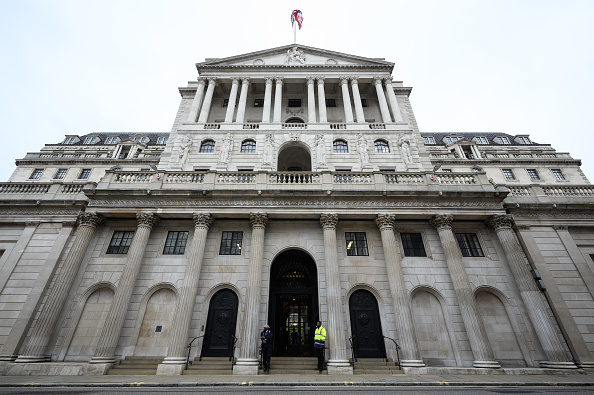Bank of England hikes rates at successive meetings for first time since 2004

The Bank of England today flexed its inflation fighting muscles and hiked interest rates at successive meetings for the first time since 2004.
A majority of the Bank’s committee of rate setters voted to lift rates 25 basis points to 0.5 per cent.
The consecutive rate hikes mark a sharp policy shift from Threadneedle Street to eliminating inflation from supporting the British economy through the pandemic.
Several members of the rate setting committee wanted to go further, voting to lift rates 0.5 percentage points, in a sign of how worried the Bank is about rising inflation.
Although the decision will help ease the rate of price rises, it will add to the cost of living storm set to spike Brits’ living standards.
The energy regulator, Ofgem, today lifted the cap on bills by 54 per cent, delivering a near £700 blow to some households’ budgets.
Today’s rate hike is a sign of things to come, with the Bank projecting rates to hit one per cent by the beginning of next year.
Inflation will smash the Bank’s forecasts again, peaking at 7.25 per cent in April, much higher than the previous six per cent expected peak.
Soaring energy costs, rising food prices and strong underlying wage growth will drive the cost of living higher.
Real disposable income will drop around two per cent, the Bank said, the worst erosion of living standards in over three decades, indicating Brits will pull back on spending sharply this year, throttling UK economic growth.
GDP growth was downgraded to 3.75 per cent due to “households cut[ting] back on spending in the face of the material adverse effects on their real incomes,” the Bank said.
Slowing economic growth will push the joblessness rate up to five per cent.
The Bank’s predictions for a substantially higher interest rate and inflation environment is likely to concern Chancellor Rishi Sunak.
The Treasury estimates each one percentage point rise in both delivers a £23bn hit to the public finances.
Inflation is not forecast to revert to around Threadneedle Street’s two per cent target until the start of 2024.
Five members of the Monetary Policy Committee (MPC) voted in favour of raising rates 0.25 percentage points, including Governor Andrew Bailey.
Four members of the MPC wanted to lift rates 0.5 percentage points.
The Bank’s QE programme, which has seen it hoover up £895bn in assets, will be scaled back by assets naturally falling off its balance sheet and through a series of corporate bond disposals.